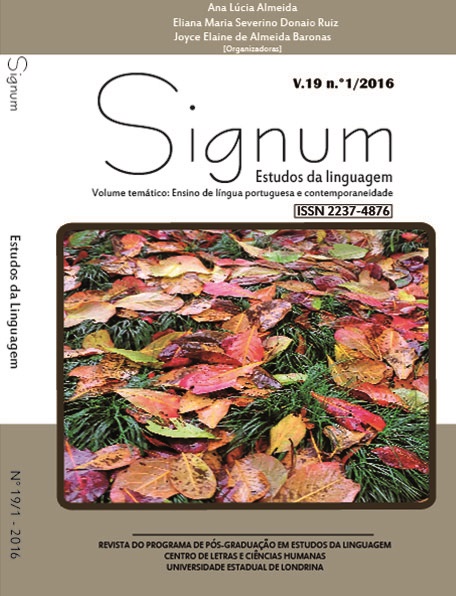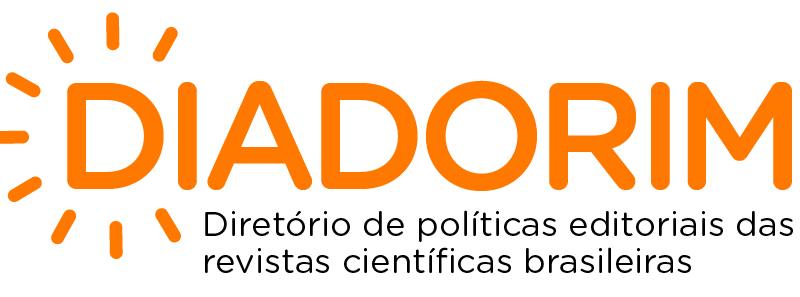The contemporary portuguese character in the universe of a multilingual subject with fragile x syndrome
DOI:
https://doi.org/10.5433/2237-4876.2016v19n1p216Keywords:
Portuguese. Contemporaneity. Fragile X Syndrome (FXS).Abstract
Associated often in autism by virtue of the similarity of symptoms (SCHWARTZMAN et al., 1995; DIAMENT; CYPEL, 1996), Fragile X Syndrome (FXS) is characterized mainly by cognitive impairment accompanied by behavioral changes and sensorimotor, learning disability, physical impairment and language. This is marked by delay in its acquisition, omissions, substitutions and phonetic distortion, echolalia, holophrase, short sentences, pauses and hesitations, interjections and frequent monologues. This article aims to discuss the contemporary character of the Portuguese language and the identification process in the language in a multilingual context as key to the appropriation of a language by a subject diagnosed with FXS. We base our discussions on Enunciation theory of Emile Benveniste (2005, 2006) and studies of Silva (2009) which analyzes for a stated perspective regarding the language, language and subject. We realized that the Portuguese language was used on specific occasions, marking unique productions in Portuguese, classical German and German dialect Schwäbisch as effects of the operations of subject, indicating that education and ownership of a language is established in an identification relationship to the subject that makes use of it.Downloads
Download data is not yet available.
Downloads
Published
2017-01-31
How to Cite
RÊGO BARROS, Isabela; DEISSLER, Lorena Grace do Vale. The contemporary portuguese character in the universe of a multilingual subject with fragile x syndrome. Signum: Estudos da Linguagem, [S. l.], v. 19, n. 1, p. 216–240, 2017. DOI: 10.5433/2237-4876.2016v19n1p216. Disponível em: https://ojs.uel.br/revistas/uel/index.php/signum/article/view/23162. Acesso em: 19 dec. 2025.
Issue
Section
Article
License
Copyright (c) 2016 Signum: Estudos da Linguagem

This work is licensed under a Creative Commons Attribution-NonCommercial-NoDerivatives 4.0 International License.
This journal reserves the right to make, in the originals, normative, orthographic and grammatical modifications in order to maintain the standard language and the credibility of the publication. It will respect, however, the authors' style of writing. Modifications, corrections and suggestions of conceptual order will be forwarded to the authors, if necessary. In these cases, the papers, once appropriate, should be submitted to a new appreciation. The final examinations will not be forwarded to the authors. Works published become property of Signum, being its total or partial reprint subject to an explicit authorization of the journal. In all subsequent quotes the original source of publication should be mentioned, in case, in Photographic Discourse. Opinions emitted by the authors are their exclusive responsibility.
















